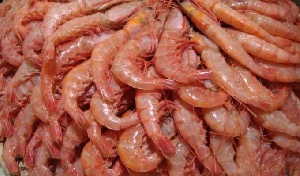President John Dramani Mahama has hyped the potential of shrimps as a commodity that will help the country to diversify its export proceeds and bring in US$200million in revenue every year.
The shrimp project, expected to start in June, has received the full backing of government as the country looks to widen its export base and improve its balance of payment position.
According to President Mahama, government is supporting establishment of the Shrimp Project by promoting their production and processing for export.
He said by making shrimp-farming popular among farmers, government anticipates that the Shrimp Project will produce 30,000 metric tonnes annually and create 76,000 direct and indirect jobs.
“Production of fingerlings laboratories, fish-feed factories, production ponds, processing and marketing facilities will be located in parts of the Greater Accra, Volta and Eastern Regions,” he added.
The Minister for Fisheries and Aquaculture Development, Sherry Ayittey, also re-echoed the President’s sentiments when she said the country has the potential to rear shrimps along the coast from Aflao in the Volta Region to Axim in the Western Region.
One of the pioneers of Ghana’s shrimp is the Ghavie Aquaculture Company, which established its first pilot scale commercial pond in 2013 in Accra with assistance from Vietnam.
So far, 200,000 tiger-shrimps and over 50,000 local white shrimps have been successfully grown.
Officials said the hatchery has the capacity to produce 15,000,000 shrimp post-larvae per month when it becomes fully operational.
In the long-term, the company wants to establish a training school at Ada, promote shrimp mariculture as a business in Ghana, and engage Vietnamese experts to impart skills to Ghanaians.
Among its benefits, the shrimp initiative is estimated to create jobs for about 200,000 Ghanaian youth within five years, address the over-exploitation of marine stock, and provide an affordable source of protein.
The Fisheries Ministries has been allocated GH?52million in this year’s budget, and the ministry has pledged its support to develop and grow the industry with necessary policy frameworks and partnerships to maximise benefits and also make it competitive on the market to guarantee good returns on investment.
Sources also indicate that investors are being sought to help the country develop its marine resources, as there are many hectares of undeveloped estuarine, coastal and saline flood-plains suitable for shrimp farming.
Business News of Tuesday, 1 March 2016
Source: B&FT

















